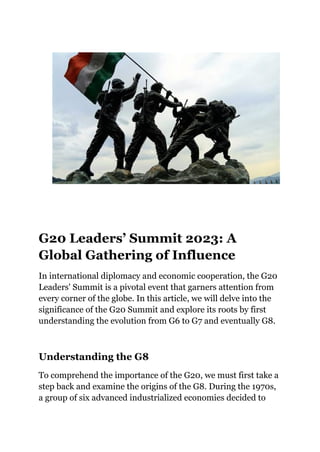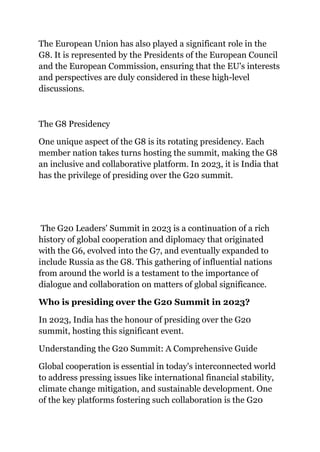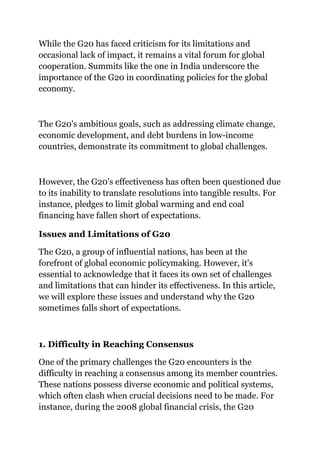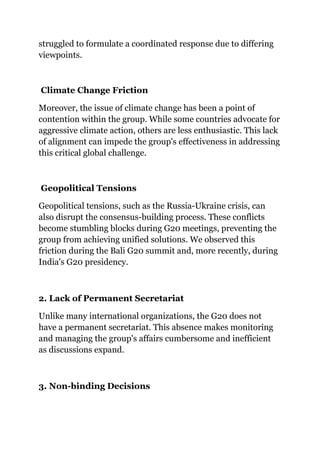The 2023 G20 Leaders' Summit, hosted by India, continues the evolution from the G6 to G20, focusing on global economic cooperation and pressing issues like climate change, food security, and digital transformation. The summit's theme, 'Vasudhaiva Kutumbakam - One Earth, One Family, One Future,' emphasizes collective responsibility in addressing these challenges. Despite its significance, the G20 faces criticisms regarding consensus-building, non-binding decisions, and geopolitical tensions that impact its effectiveness.

















